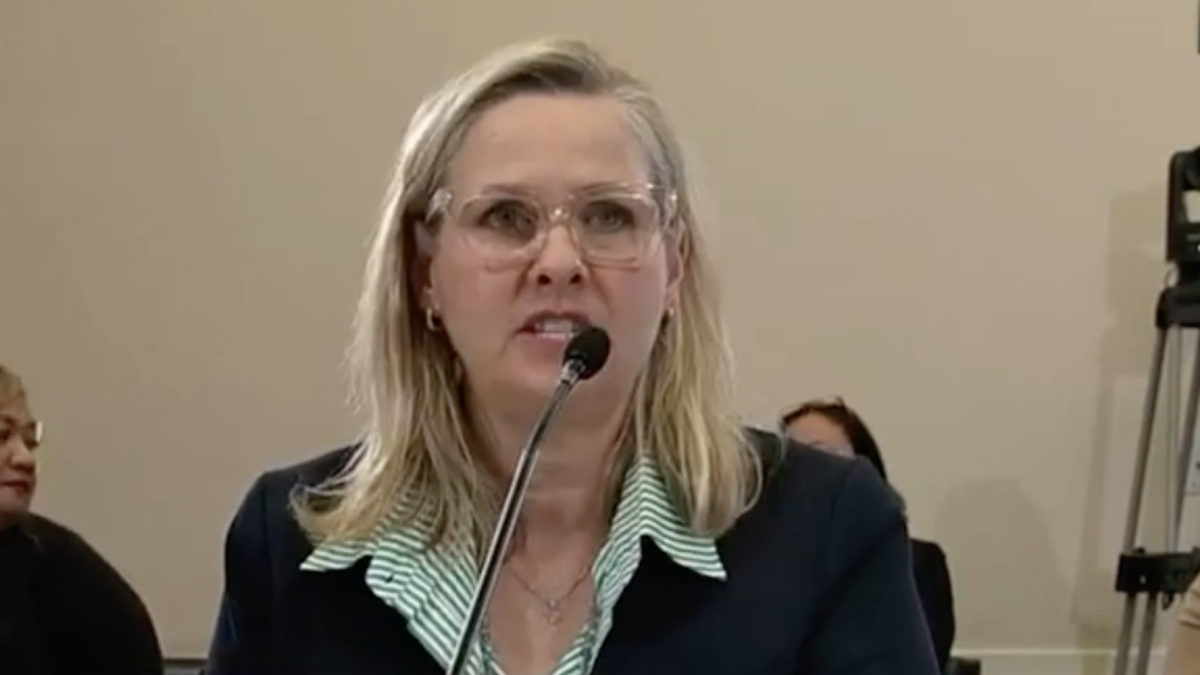
Last night, Hollywood celebrity Seth MacFarlane introduced Sen. Bernie Sanders (I-VT) at a fundraiser. He explained his support of the spry 74-year-old democratic socialist who is giving Hillary Clinton a run for her money in early primary states:
“I wanna tell you the moment when for me Bernie Sanders won last night’s debate. [applause] The question was asked, ‘What is the greatest national security threat to the United States?’ The other candidates gave answers like the crisis in the Middle East, nuclear Iran, ISIS, cyber-warfare, and offensive tweets — all legitimate threats, to be sure. But Sen. Sanders was only person on that stage who gave the correct answer: climate change.
Of all of our biggest challenges, from social inequality to health care, this is the one that must go immediately to the front of the line. Because it is the only one with a non-negotiable timetable.”
You can watch it here:
MacFarlane went on to sound, in both nuance and substance, much like an antagonistic character out of an Ayn Rand novel, but with far better jokes. At one point he suggested that energy companies be forced “almost overnight” from producing fossil fuels into wind and solar production and that this would simply require “arm twisting” and a smidge of diplomacy. He said that if Franklin Delano Roosevelt could force auto companies into war production overnight, it would be no less necessary for President Sanders to do the same with regard to our new “enemy,” which is climate change.
In terms of discussion of current national security threats during the debate, not much time was allotted. Literally, not much time:
ANDERSON COOPER: Very quickly, 30 seconds for each of you. Governor Chafee, who or what is the greatest national security threat to the United States? I want to go down the line.
Thirty seconds! It sounded like a joke, almost.
Lincoln Chafee said the chaos in the Middle East, which he believes, interestingly enough, “started” with the Iraq invasion. Martin O’Malley’s biggest threat was a three-parter: nuclear Iran, ISIL and … climate change. Clinton said the spread of nuclear weapons. Webb said that our greatest long-term threat is China, our greatest short-term security threat is cyber warfare, and our greatest military-operational threat is resolving problems in the Middle East. Here is what Sanders said:
SANDERS: The scientific community is telling us that if we do not address the global crisis of climate change, transform our energy system away from fossil fuel to sustainable energy, the planet that we’re going to be leaving our kids and our grandchildren may well not be habitable. That is a major crisis.
OK, so let’s quickly note the silliness of saying the planet will be uninhabitable for either our kids or our grandchildren. Uninhabitable is a word with a meaning and that meaning is “not capable of being lived in.” I don’t know if Sanders’ son has any kids but he was born in the 1960s. This planet is not uninhabitable, obviously. If it truly would be uninhabitable for our grandkids, or even great-great-great-grandkids that would mean that things were so obviously far gone that nothing we could do would stop it. This far-fetched alarmism is one reason why so many have trouble taking claims of climate change seriously.
And while global warming predictions abound — here’s 2009 footage of former Vice President Al Gore predicting, based on computer models, that the entire northern polar ice caps would very likely be ice free in 5-7 years (spoiler: nope, of course) — most climate change activists are into longer-term predictions. Just yesterday the Natural Resources Defense Council published this interactive map that claimed to show “what kind of sea-level rise we’re in for under different emissions scenarios.” And in the notes section it gives a pretty staggering disparity for when we might reach those predicted levels. One article said it could be 200 years or so and another said 2,000 years. Two millennia.
As the NRDC note to the map itself said, “It is easier to estimate how much ice will eventually melt from a certain amount of warming, than how quickly it will melt, which involves more unknowns.” You don’t say! Whether or not you believe that the science is settled (heck, whether or not you believe it is possible for science to be “settled”), the fact is that when it comes to predicting the actual results of climate change, the uncertainty is extremely high. The uncertainty of various computer model predictions is so dramatic that it’s almost funny, in fact. And nobody has any idea whether any of the policy proposals would have any effect, much less any sizable effect, on the problems predicted by many regarding climate change.
But I know that people get very upset about climate change, and they cling to their beliefs about it. Fine. Can we just acknowledge that it’s not an appropriate answer to a question about national security?
Listen, something can be important and not be an appropriate response to a question about national security:
National security is a corporate term covering both national defense and foreign relations of the U.S. It refers to the protection of a nation from attack or other danger by holding adequate armed forces and guarding state secrets. The term national security encompasses within it economic security, monetary security, energy security, environmental security, military security, political security and security of energy and natural resources.
Specifically, national security means a circumstance that exists as a result of a military or defense advantage over any foreign nation or group of nations, or a friendly foreign relations position, or a defense position capable of successfully protesting hostile or destructive action. In Cole v. Young, 351 U.S. 536 (U.S. 1956), the court observed that ‘the term “national security’ in the Summary Suspension Act (64 Stat 476), authorizing the heads of specified federal agencies to summarily dismiss federal employees upon a determination that dismissal is necessary or advisable in the interest of the ‘national security,’ is used in a definite and limited sense and relates only to those activities which are directly concerned with the nation’s safety, as distinguished from the general welfare.
Armed forces. State secrets. A military or defense advantage over any foreign nation.
People who are very worried about a given problem may like to refer to it as “the enemy,” but that is a figure of speech. Just like when Lyndon Baines Johnson referred to poverty as an “enemy” that we had to raise armies to fight against. And every bit of presidential rhetoric likes to cast policy goals in terms of heroes, enemies, and victims. So I get referring to climate change in similar language — it’s a tried and true rhetorical device.
But there’s a difference between saying that poverty, climate change, high abortion rates, mass shootings, educational ignorance, racial conflict, moral turpitude, growth of the administrative state, intolerance of religious differences, heroin, obesity, and whatever other pet issue you have are bad, real bad, and saying that they are our biggest national security threat.
Each of these things might even have a component dealing with national security, some bigger than others. Some contractors know there’s money to be made in them thar climate change hills and are pushing our military industrial complex to spend lots of cash on adaptation to climate changes that might show up in 100 years or so. Some contractors know there’s money to be made elsewhere in the military-industrial complex. That’s what they do. And, heck, who knows, maybe they’re right. And also maybe our military spends way too much time on things that have nothing to do with their actual national security mission. OK, not maybe, but certainly.
And yes, I know that various military officials sometimes rattle on about climate change. It’s not just under Obama. There was a report that the Pentagon, under President George W. Bush, believed that “major European cities will be sunk beneath rising seas as Britain is plunged into a ‘Siberian’ climate by 2020,” during which time, “Nuclear conflict, mega-droughts, famine and widespread rioting will erupt across the world.” This is the type of prediction that sounded ever-so-marginally less stupid in 2004 than it does in 2015 and makes Al Gore’s polar ice caps prediction seem downright sensible. Or, again, maybe the climate alarmism is totally reasonable and things are going to go seriously and apocalyptically ass over teakettle for European cities sometime in the next four years. Go to Oktoberfest in Munich while you can!
Anyway, when you’re asked a question about national security, keep it in the real national security world.
Revisit MacFarlane’s comment. He listed two other challenges that climate change was more important than: social inequality and health care. Why? Because, he said, the timeline on climate change was more important. Let’s leave aside the wisdom of viewing the centralized state as the solution to any of these problems and simply acknowledge that social inequality, health care, and climate change aren’t national security issues! Social inequality may be super important to MacFarlane, who has a net worth of $150 million and is #86 on Forbes magazine’s list of the wealthiest 100 celebrities. It may be one of the things he thinks is really quite problematic. But his list is a list of either domestic problems or global problems that are not warehoused in the national security complex.
Because when we want to know what a candidate thinks about national security, that’s a cue to talk about armed forces, spy networks, and diplomacy. Talking about climate change, as Sanders and Obama have done in recent days when asked about it, comes off like an attempt to pretend that an unsafe world is safe.
And unless MacFarlane, Sanders, and their friends want to use armed forces and spies and whatnot against the billions of people on this planet who benefit from fossil fuels, they need to stop talking about it as a national security threat. And now that I’ve written it that way, I’m scared that this is precisely the progressive dream of the future.
But in the real world, with real problems in and with regard to China, North Korea, Russia, Iran, and elsewhere, we need our political leaders to be serious and sober about when and whether to engage and how best to protect our country. Wishcasting these real national security threats away in favor of any other problem doesn’t actually make them go away. Conflating national security with climate change is detrimental to both issues.









